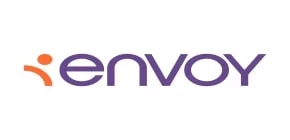Key Points
- On December 1, 2020, a U.S. District Court in California struck down H-1B visa restrictions
- The case concerns rules issued immediately by DOL and DHS without a 30-day public notice and comment period
- The court ruled that the DOL and DHS violated APA requirements upon implementing their interim final rules for the H-1B program
- The ruling prevents changes to the H-1B program regarding eligibility requirements and minimum salary requirements for H-1B beneficiaries
Overview
On December 1, 2020, the U.S. District Court for the Northern District of California decided that the interim rules for the H-1B program issued by the Department of Labor (DOL) and Department of Homeland Security (DHS) were invalid. The court granted Plaintiffs' (U.S. Chamber of Commerce) motion for a partial summary judgment and denied Defendants' (U.S. Department of Homeland Security) cross-motion.
What are the Changes?
The District Court's order concerns the implementation of rules issued by the two federal agencies to make changes to the H-1B program. DOL and DHS asserted that their interim rules regarding changes to the H-1B visa program were necessary to protect U.S. workers during the COVID-19 pandemic. Both agencies implemented their rules on October 8, 2020. The DOL's rule was effective immediately, and the DHS's rule was scheduled to take effect on December 7, 2020. However, the District Court found that the agencies unlawfully bypassed legal procedural requirements by issuing their interim final rules without a 30-day public notice and comment period. The agencies' rules tightened eligibility requirements and increased minimum salary requirements for skilled H-1B beneficiaries.
Both agencies invoked the good cause exception in the Administrative Procedure Act (APA), which allows government agencies to bypass the normal 30-day waiting period that is otherwise mandated by the APA before a rule can take effect. The agencies claimed COVID-19 as their reason for invoking the good cause exception and issuing the rules on an emergency basis. The court concluded that although COVID-19 is a national emergency, the statistics provided by both agencies were not sufficient to invoke the good cause exception. Additionally, the District Court found that the agencies did not provide sufficient evidence of the pandemic's detrimental impact on the U.S. workforce to invoke the good cause exception and bypass the public notice and comment period before issuing their rules. While the agencies claimed that their rules were necessary to protect jobs for U.S. workers, the court found that statistics show unemployment rates for H-1B positions were at 4.8% with jobs still available in the market. Furthermore, the Trump administration had been discussing these alleged issues since 2017. Consequently, the court concluded that the agencies' reasoning was insufficient to justify implementing their new rules on an emergent basis through the good cause exception.
What Should Employers and Applicants Know?
The court's order follows extensive litigation surrounding the H-1B visa program. While there is still time to promulgate the rules, that is not likely to happen. As of December 1st, the court's decision prevents the Trump administration from tightening eligibility requirements and raising minimum salary requirements for foreign workers on high-skilled work visas.
The content of this article is intended to provide a general guide to the subject matter. Specialist advice should be sought about your specific circumstances.

